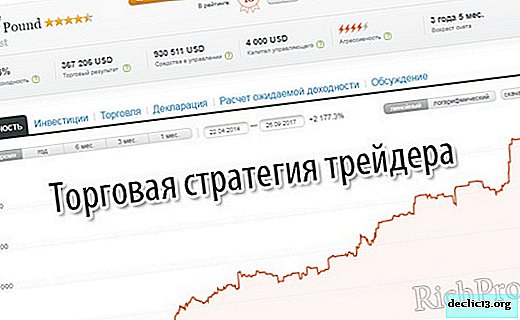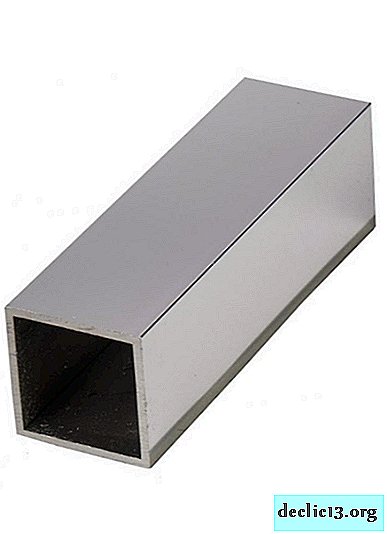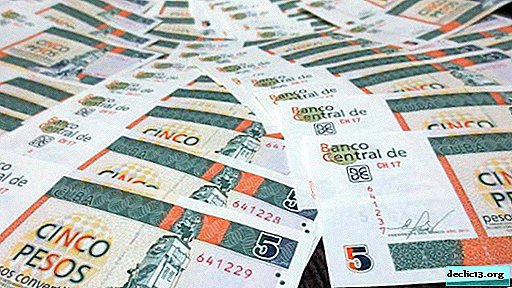Who is a trader and how to become a trader from scratch in 6 steps - an overview of the concept + step-by-step instructions for beginners
Good afternoon, dear readers of the Rich Pro financial magazine! Today we’ll talk about what a trader is: who he is, what he does and how to become one.
Having studied the article from beginning to end, you will learn:
- Who is a trader and how much does he earn;
- How to become a trader - instructions for beginners;
- Where to look for a trader and what to look for when investing;
- How to get training and what mistakes beginners make.
At the end of the article, we traditionally answer frequently asked questions.
The publication will be useful to those who decide to become a trader, as well as those who wish to invest in them. To learn these questions faster, start reading now!
 About, who is a trader and what does he do, how to become a successful trader from scratch - read in this article
About, who is a trader and what does he do, how to become a successful trader from scratch - read in this article
1. Who is a trader and what does he do - an overview of the concept
So what does the concept of "trader" mean?
Trader (from the English trader) is a market participant who trades on the exchange and makes money on changing the rates of instruments used in trading.
The income of a trader is determined not only by his ability to manage capital, but also by what strategy he prefers to use.
Traders who trade with minimal risk manage to earn approximately 100-200% annually. For more risky strategies, the amount of profit is unlimited (as well as the amount of losses).
Experts do not recommend beginners hope for income in excess of 100% per year. Subsequently, with an increase in experience and the quality of trade, as well as an increase in the amount of funds in circulation, one can count on higher profits.
Earnings for traders is formed when the value of the financial instrument with which it works changes. Under financial instrument understand any object that is traded on the exchange. It can be raw materials, securities, currencies, as well as fixed-term contracts.
The most important rule that helps to receive income from changes in value is the need buy cheaper and sell more expensive. However, it should be borne in mind that intuition alone will not be enough to understand the direction of price movements.
When deciding to open or close a deal, traders carefully analyze the market. There are a large number of different techniques that are used for such an analysis.
All methods used by traders to analyze the market can be combined into 2 large groups:
- technical analysis;
- fundamental analysis.
Fundamental techniques study the trends in exchange rates depending on the phenomena occurring in the economy. According to Charles Dow, “the market takes everything into account.” That is why traders who use fundamental analysis in their work, try to study all the nuances of the world of finance.
Due to the fact that there are a lot of factors influencing the value of financial instruments, the methods of fundamental analysis are quite difficult to apply in work.
Many people think that technical analysis to use much more convenient. His methods for predicting the movement of prices use the history of prices, which is reflected in the charts.
 Technical analysis is based on a number of signals (indicators, history of quotes, chart figures and others)
Technical analysis is based on a number of signals (indicators, history of quotes, chart figures and others)
Technical analysis uses a number of different signals:
- historical levels;
- indicators;
- chart figures;
- candlestick models.
However, a large amount of necessary knowledge is not the only difficulty. Often on different timeframes you can observe trends that are radically different from each other.
It can be concluded that each type of analysis has its own advantages and limitations. To effectively apply them in trade, you have to study for a long time. Do not believe the advertising slogans that claim that a few lessons are enough to become a professional. In fact, traders learn lifelong analysis.
 Traders are divided into the following types: scalper, daily, medium and long-term trader
Traders are divided into the following types: scalper, daily, medium and long-term trader
2. What are traders - a description of 4 types
Traders can be classified according to various criteria: by the type of instruments used in trading, aggressiveness of the strategy and other signs.
One of the most important classifications is the one that divides traders by duration of applied trading periods. Let's consider it in more detail.
View number 1. Scalper
Scalpers work with the shortest time frames (trading periods). Their duration is 1 or 5 minutes.
Scalping is trading with the highest level of stress. At minimum timeframes, the value of the instrument changes very quickly. It can be very difficult to analyze, because on small periods more than 80% reflects market noise.
Despite the difficulties, professional scalpers earn more than other traders. That is why the number of people wishing to master scalping is constantly growing.
View number 2. Day trader
By the way, you can trade financial assets (currency, stocks, cryptocurrency) directly on the stock exchange. The main thing is to choose a reliable broker. One of the best is this brokerage company.
Intraday trading is popular when working with various financial instruments. In this case, positions open and close. during the day. For markets that do not work within 24 hours (egstock exchange) this period is reduced up to 1 trading day.
Trading intraday is especially popular in the stock market (securities market). This is due to the fact that the risk increases if you leave the position open at night. As long as the market is closed, prices may move against the trader. Until the morning, the position will remain open, and the trader will receive a loss.
Most transactions in the securities market remain open only for a few hours. On time frames lasting one hour, the level of market noise is reduced. This leads to an increase in the accuracy of the analysis.
View number 3. Mid-term trader
Mid-term traders keep positions open for several days in a row. They conduct the main analysis on the daily chart. At the same time, to use them, they use the most profitable entry and exit points to the market. 1- and 4 hour timeframes.
Increasing the length of the trading period on the chart allows you to reduce the noise level. That is why the analysis on the medium-term timeframe gives more accurate results.
View number 4. Long term trader
Long-term traders do not close positions for a long time. Often, transactions remain open for several weeks and even months.
Important! Long-term traders are much less likely to use technical analysis. On long timeframes, fundamental methods cannot be dispensed with.
When analyzing, it should be borne in mind that with an increase in the trading period, the time required for market analysis decreases. Traders who leave trades open for several weeks only evaluate charts on the weekend. On weekdays, they usually do not open the terminal.
To conclude the story about the types of traders, we present a table that shows the noise level for different time periods.
Table of market noise level versus timeframe duration:
| Timeframe duration | Graph Noise Level |
| Up to 5 minutes | More than 50% |
| 1 hour | About 30% |
| 4 hours | Less than 10% |
| 1 day | Less than 3% |
| 1 Week | No noise |
It is important to understand that over long periods the analysis is more reliable due to the absence of noise. However, for successful trading on such timeframes, a sufficiently large deposit will be required.
 How to become a trader in Russia from scratch - a step-by-step guide of 6 steps
How to become a trader in Russia from scratch - a step-by-step guide of 6 steps
3. How to become a trader from scratch in 6 steps - step-by-step instructions for beginners
Despite the fact that the instruction contains a small number of steps that seem elementary, you should not expect that learning to trade will turn out easily and quickly. Trading on the exchange is not an easy task.
Worth considering! Some newcomers believe that they will become a trader by opening the first deal. But trading training is a long process. You have to overcome a number of mistakes and failures.
Beginners who do not give up in the process of practice will gain a sustainable trading skill. Only after the trader achieves a stable profit can he be called a professional.
Below is given step-by-step instruction, which will help the novice trader make mistakes.
Step 1. Choosing the right type of trading
First you need to choose type of marketon which the trader will work. You should also decide on direction of analysis and timeframe. In addition, it is important to analyze the advantages and disadvantages of your choice.
Experts advise learn first forex currency market. It is more amenable to technical analysis than stock. The cost of tools changes more smoothly. Only after gaining trading experience should you switch to stocks and bods market.
Step 2. Choosing a broker
The success of trading is largely determined by the right choice of a brokerage company. It is important to pay attention to Availability licenses. If the relevant document was issued by the Central Bank of Russia, you can trust the broker with full confidence.
However, it’s worth understanding that the guarantees of European regulators in Russia do not matter. It is unlikely that traders, when problems arise, will go to the judicial authorities of the European Union.
Licenses are issued in Russia only those brokers whose capital exceeds 100 million rubles. Naturally, one-day companies, as well as those with dubious reputation, do not have such an amount of funds.
☝ If you intend to trade in the Forex market, we recommend that you read the rating of Forex brokers. Most experienced traders work on the exchange through this broker.
Step 3. Training
When the preparatory stages are completed, you can begin training. It can be called the start in trading. Beginners should not think that from the first day they will be able to earn huge sums.
Most beginning traders at first lose money. That's why experts advise: Before opening real money deals, it’s worth going through training.
You can get stable profit from trading. But you have to make a lot of effort. You should trade and learn continuously for a long time.
About Forex training, we wrote in detail in a separate publication.
Step 4. Trading on a demo account
Professionals recommend that beginners start trading only after training on a demo account. Trading is carried out with virtual money.
Important! Training accounts are not only for understanding the basics of working with the terminal. With their help, you can conduct a test of the trading system planned for use.
Another way to check the strategy is to upload the full quote history to the terminal. After that, analyzing the chart, the trader selects entry and exit points and analyzes the results (profit and loss). The main thing is to do it honestly, in accordance with the developed strategy.
Step 5. Opening a trading account
Opening an account, a beginner must deposit a certain amount of money into it. Each broker sets his own minimum depositBy making which, the trader can start trading.
However mthe minimum deposit and the amount sufficient for trading are not the same thing. If the minimum transaction volume with a broker is 1 lot, for medium-term trading, subject to the rules of funds management about 30 000 dollars.
Naturally, no newcomer will agree to deposit such an amount. That is why traders set the minimum deposit at about 100 dollars.
Step 6. Real trading
Experts recommend Traders keep a trading journal in which all trading positions are marked. The diary should contain opening points and closing deals Stop Loss value and Take Profitwhether they changed during the course of the trade.
For the convenience of keeping a diary, professionals advise using electronic online services.
It may seem that there are not many steps that will lead newcomers to success. However, to achieve a stable profit, you will have to work long and hard.
 The main advantages of working as a trader
The main advantages of working as a trader
4. What are the advantages of working as a trader - 3 main advantages (➕)
Those who decide to start working as a trader, it is important to know what are the advantages of this type of activity.
Become a professional in this activity not easywill have to spend a lot of time and effort. That is why it is important to understand what can be obtained in return. Consider 3 major benefits.
Advantage 1. Ensuring the independence of the trader
Trading - a form of earnings in which the speculator decides at what time he should work. There is no boss at the same time, and you can make a profit wherever there is a computer and stable internet. Therefore, trading is great for those who are not used to sitting in one place.
Also, this type of earnings will appeal to those who do not have a large degree of sociability. In the process of trading, there is no need to establish contacts with anyone.
Advantage 2. No need for specialized education
Without a doubt, many professional traders have an economic and even financial education. However, most speculators work in completely different areas.
Many successful traders are self-taught. Some get knowledge at special coursesbut most - from specialized literature.
Advantage 3. Possible income is not limited by anything.
The amount of income is determined deposit amount, as well as degree of aggressive trading strategy. Increasing the amount in the trading account allows the trader to increase the lot size in his trading strategy. The result is growth arrived in every transaction.
The level of risk also has a direct impact on income. Traders who prefer an aggressive strategy can earn quite a lot. However, in the absence of experience and a good strategy, the probability of loss of invested funds increases.
It is the abovementioned advantages that attract a huge number of beginners to trading. However, in the hope of a huge income, they often quickly drain the deposit.
Do not forget about the essential lack of trading: the instability of the income. Sometimes even professionals suffer losses for a long period.
5. Who trains traders - TOP-4 companies teaching the basics of trading on the exchange 📚
Traditionally, training courses on trading offer brokers through whom you can conduct trading. Typically, classes are aimed at mastering certain tools that a particular company works with. Therefore, before starting training, it is worth choosing a tool for trading and a broker.
Below are brokerage companies that offer, according to many, best trading conditions and training courses. You can distinguish among them "ForexClub"which has many positive reviews online.
1) Olymptrade

Olymptrade - a broker who works with binary options.
By registering on the site, the user gets free access to a huge amount of useful information. At the same time, opening a real account for trading is not necessary. Here you can find video lessons, articles and eBooks.
In addition, Olymptrade regularly hosts webinars. Such classes are absolutely free, just sign up for participation. If for some reason the trader cannot be online, he has the opportunity to later review the lesson in the record.
A beginner can also order a free call from the manager. The specialist will answer questions, talk about possible strategies for trading binary options.
2) Alpari

Many experts believe that in Alpari offer the best free tuition. You will have to pay here if you want to undergo in-depth training. Wherein only 10% of courses are paid.
In Alpari, you can find informative classes that can only be called paid. To get access to them, it is enough to replenish the trading account by a certain amount. Most often it is 100 dollarsless often 1000 dollars. If, after studying the courses, you give up the idea of trading, you can easily withdraw the invested funds. The only costs will be Commission for withdrawing.
Training in Alpari is carried out in the form of webinars. The advantage of such classes is the ability to communicate with the teacher online.
3) TeleTrade

TeleTrade - broker with favorable trading conditions. This company is popular among both beginners and professionals.
Here you can get free training for novice traders. It is carried out in webinar formatthat you have to sign up for, as they don’t go every day.
Traders who want to deepen their knowledge will have to pay money for additional courses.
4) Phoenix

Phoenix offers quality training. All classes are well structured, there are in-depth courses. However there is a significant in phoenix disadvantage - Tuition is paid.
When agreeing to paid courses, it should be understood that they do not guarantee success. Training only allows you to get the necessary knowledge. To start earning, you will have to constantly trade, gaining experience and putting the acquired knowledge into practice.
Important to understand that ideally, training should take place with a broker with whom you have to collaborate. This is due to the fact that in most cases, classes are customer-oriented.
 Where and how to find a trader for investing - 6 expert tips
Where and how to find a trader for investing - 6 expert tips
6. How to find an experienced trader to invest in - 6 tips for choosing a manager
Most major brokers offer to use. PAMM Account Service. It is designed to transfer funds to the management of professional traders. The profit received is divided between the owner of the capital and the manager. In more detail about what PAMM accounts are we wrote in a previous article.
Important! To protect investor funds, developed a rule that obliges traders to deposit funds and their funds into the account. Ideally, the amount of equity and borrowed capital should be the same.
If a trader incurs losses, he loses both the investor’s funds and his own. Therefore, the larger the share of the manager’s own capital, the more reliable it can be considered.
However, when choosing a trader for investment, other parameters should be considered. Are below expert advice on how to choose the best manager.
Tip number 1. Compare Traders Rating
The services of PAMM accounts of various brokers have ratings reflecting the level of profitability of various traders who manage capital. It is enough to analyze it and choose the appropriate option.
 Rating of traders - managers on the example of PAMM-accounts according to the main parameters (profitability for the year, estimates, etc.)
Rating of traders - managers on the example of PAMM-accounts according to the main parameters (profitability for the year, estimates, etc.)
When comparing ratings, it is important to consider that at the top traders who traditionally use aggressive strategies. They show the greatest profit. However, the risk of losing investments when working with these traders is maximum.
Experts advise invest in managers using conservative strategies.
Tip number 2. Choose experienced managers
Some beginners manage to show good profitability in the first days. However, at the first sharp changes in the market, they merge the deposit on the nerves. That’s why it’s important to consider trading time, as well as total return for the entire duration of the account.
Tip number 3. Analyze the trading strategy of the trader (manager)
It is important to understand the essence of the trading strategy used by the manager. Therefore, do not invest BEFORE the moment of passing at least basic training.
 Analysis and study of the trading strategy of the trader - manager
Analysis and study of the trading strategy of the trader - manager
It is important to choose a strategy that meets investor preferences. Its effectiveness can be assessed by profit chart analysis. Ideally, it should be a gentle ascending line.
Tip number 4. Estimate the value of the manager's equity
At this step, it is important to analyze not the size of own investments, but their attitude to attracted capital.
Trusted Brokers always place information on the ratio of the capital of the manager and investors on the website. If there is no such information, you should look for another company.
Tip number 5. Managers who are members of NAUFOR should be preferred.
National Association of Stock Market Participants Engaged in monitoring the work of Russian brokers. To avoid problems, it is worth studying the ratings that are given to the broker NAUFOR.
Tip number 6. Diversify your investment
Diversification in the investment process is of utmost importance. The distribution of capital between several traders allows you to save most of the money. However, with the collapse of the broker all the money will be lost.
Therefore, it is important to distribute capital Not only between managersbut also among brokers.
Following simple tips from professionals will help investors not only not to lose their own funds, but also to make a profit.
 Common mistakes of new traders
Common mistakes of new traders
7. Common mistakes of novice traders - TOP-9 common errors 📛
In any business, it is important to learn from the mistakes of others, trading is no exception. Therefore, you should carefully consider the list compiled by specialists.
Mistake 1. Lack of interruptions in trading
Many novice traders tend to trade almost continuously, trying to open deals with every price change.
Haste leads to a lot of erroneous positions. As a result, the loss exceeds profit.
It is important to remember that trading is not a traditional work that must be carried out continuously for a certain period of time. When trading on the exchange, the amount of income is determined not by the time spent on the work, but by its effectiveness.
Mistake 2. Desire to cover maximum tools
Traders who try to trade a large number of instruments at the same time often miss great moments to open a position. In fact, there is no need to analyze the entire market.
Experts believe that to make good profit it’s enough to use 1-2 financial instrument.
Mistake 3. Closing a position during the formation of even a small profit
Beginners very often close deals when generating the slightest profit. This approach leads to the fact that instead of a substantial income it is only possible to cover losses.
Take note! An excellent position should bring a profit that is at least 5 times higher than the risk originally implied in the transaction.If the trader is afraid that the market will turn around, you can set Stop Loss in the profitable zone and gradually move it.
Mistake 4. Holding unprofitable positions
In some cases, unprofitable positions are deployed and become profitable. In the hope of this, newcomers very often refuse from establishing Stop Loss.
However, the market may not return to the desired level for months. As a result, for a long time they do not make a profit, but beat back losses.
Mistake 5. Trading at random
Experts constantly repeat that competent conducting of trading involves development strategieswhich includes opening rules and closing positions.
Despite this, newbies often trade at random. Such trading can not be called work, it is more like roulette game. Naturally, such an approach does not guarantee stability.
Error 6. Analysis of operations is not conducted.
If a trader does not keep a trading journal in which he reflects all positions, he cannot analyze the advantages and disadvantages of transactions.
The result of this is most often one - the mistakes made are constantly repeated.
Mistake 7. No clear strategy.
It is impossible to achieve a stable profit in trading without a clearly defined strategy. It is such a plan that allows the trader not to focus on the results of one transaction, but on the overall success of the trade.
Professionals say what is a strategy that allows you to achieve profitability 70% deals can be considered effective.
Mistake 8. Lack of rest from the market
Rest from the market allows you to increase the amount of income received. Continuous tracking of charts leads to a decrease concentration level and increase number of erroneous transactions.
That is why successful traders always alternate trading with periods of rest from the market.
Mistake 9. Substitution by trading in real life.
Newcomers are often too keen on trading. They spend a huge amount of time behind the monitor screen, forgetting about real life. Making more money is unlikely to succeed.
8. Answers to frequently asked questions (FAQ) 📣
When deciding to become a trader, beginners are faced with a lot of questions. So that you do not have to waste time searching, we traditionally respond to the most popular of them.
Question 1. What are the forums for traders and why are they needed?
Many people think that successful traders do not attend forums. Such a judgment is largely true. After all, where to find time for communication, if you need to monitor the market, analyze, open positions. Moreover, most professionals are reluctant to share successful strategies.
Important! Despite the fact that there are few real experts in the forums, they remain a source of a huge amount of useful information. Therefore, their popularity among traders does not fade away.
Forums on market trading can be divided into 2 large groups:
- independent - created by the traders themselves in order to exchange useful information, discuss the market situation. Many believe that it is on such forums that the most active discussions are held;
- broker forums - Portals created by brokerage companies themselves. They are more dependent, so in most cases they are a tape of advertising and news.
Forums can help beginners find a lot of useful information. But among the huge number of Internet portals it is not easy to find the best.
To choose the most useful forum, it is important to evaluate the number of sections on the site, as well as their relevance. You can evaluate the negotiability of any topic if you pay attention to the number of posts in a particular topic and the date of the last of them.
Question 2. Why do I need a Forex economic calendar for traders?
You can earn money by trading only if you can correctly predict the upcoming price movement. An economic calendar can help with making forecasts.
Economic calendar is a list of upcoming world economic events in chronological sequence.
 Forex economic calendar for traders (an example of economic news for traders) - what is it for and how to use it
Forex economic calendar for traders (an example of economic news for traders) - what is it for and how to use it
Outgoing news affects the value of a financial instrument, and the degree of change in quotes depends on the importance of the event. Using an economic calendar, any trader absolutely is free can understand what events will happen in the world.
Using the economic calendar, you can answer the following questions:
- the value of which financial instruments will change under the influence of the event;
- how previously similar situations affected quotes;
- what forecast can be given regarding changes in the price of a financial asset.
Before the news is published on the economic calendar, a trader can analyze only historical data on the value of a financial instrument and forecasts of its change.
When the speculator becomes aware of the date of a certain event, he will be able to build his forecast. In other words, information from the economic calendar allows traders, taking into account the previously observed situation, to trade on the news.
Question 3. What is a trader’s calculator and how to use it?
First, let’s define the term “trader’s calculator”.
Trader's calculator - This is a special program that is necessary for calculating various trade data.
Such a program plays a huge role, because any errors can be very expensive. To protect themselves, traders use special calculators.
Using the trader’s calculator, you can calculate various parameters:
- the cost of one point of price change;
- margin level;
- transaction risk;
- profit or loss of the transaction.
Main advantage The trader’s calculator is the ability to eliminate the error. Using such a program is easy. Just select the tool used in the trade, enter the necessary data and press the button "calculate".
Question 4. What is technical analysis for novice traders and how is it used?
Each novice trader sooner or later raises the question of choosing a strategy for trading. Many of them choose techniques that use the principles of technical analysis.
 What is and where is technical analysis applied
What is and where is technical analysis applied
Technical analysis represents techniques that work with charts and indicators based on historical data on the value of instruments.
It helps to adequately trade, predict the value of the instrument and understand the situation on the market.
When conducting a technical analysis, several groups of methods are used:
- various figures;
- indicators;
- ways to display data - candles, bars and others.
The main goal of technical analysis is to search for patterns in historical data on price changes and make forecasts based on them.
Technical analysis can be applied in almost any financial market - currency, raw materials, commodity, stock and urgent. In other words, similar techniques work everywhere where historical data on quotes can be plotted on a chart.
In most cases, for beginners, technical analysis becomes a headache. Explore it quickly will not work. To understand the basics of the most popular techniques, you will have to learn throughout the work of the trader. The courses offered to beginners can only provide the basics.
Effective classes must necessarily contain the main topics:
- the concept of Japanese candles and figures from them;
- trend determination on the chart;
- support and resistance lines;
- indicators.
Question 5. Who is a scalper and what are the disadvantages of this trading strategy?
Earlier we talked about the existing types of traders, where the scalper was also mentioned.This type of trading is very in demand, since with the right approach it makes it possible to earn big money. Therefore, the number of people who want to master scalping is usually a large number.
Scalper (from the English. scalper) is a trader who works on minimum time periods. Most often, scalpers use time frames equal to 1 and 5 minutes.
Thanks to these ranges, scalpers are able to profit from minimal price changes.
The ideal place for traders using minimal time frames to work is Forex trading. This is due to the presence of leverage, which allows you to use in trading amounts that are many times higher than the investments of traders.
In addition, the foreign exchange market is different high volatility. Throughout the day, currency pairs make a huge number of small movements. It is these changes that scalpers try to catch.
Scalping traders make a large number of operations during the day. For them 100 transactions during the day are the norm. Each of them takes only a few minutes, but the price manages to go through a few points, sufficient for a scalper.
Important to understand that certain positions do not bring significant income. The scalper earns due to their large number. As a result, small profits add up to sufficient income. If the deal goes into negative, an experienced scalper closes it. It is important for him that the total income be greater than the total loss.
There are several principles that guide scalpers:
- The desire to catch movements that exceed the double spread;
- The power of movement is higher than its direction;
- Tough attitude to losses - exit from the market is carried out as soon as it becomes clear that the direction of the price has been correctly guessed;
- All deals should be closed before the end of the daily trading session.
There are several disadvantages of working on the smallest timeframes:
- Stop Losses are set too close to the opening price of the transaction. The result is a high risk of closing the transaction due to the influence of market noise. Beginning scalpers try to eliminate this drawback by abandoning Stop Loss levels. Doing this is not worth it, since at the same time any sharp movement against the position set by the trader can lead to a drain of the deposit;
- High level of nervous tension. Beginners are unlikely to be able to cope with trading in a state of constant stress.
Recently, traders began to use automatic scalping. Now there is no need to sit at the computer around the clock. Any trader who knows the basics of programming is able to create their own robot. Subsequently, it remains only to periodically adjust it.
There are several trading rules that a scalper must adhere to:
- It is worth trading on time frames lasting less than 5 minutes;
- When choosing a financial instrument, you should prefer those volatility which during the day is high, and spread low
- Market analysis carried out about 10 minutes, after which the next trend is caught;
- Since the goal of the scalper is profit about 1.5 spreads, deals often have to be closed manually, because brokers usually do not allow putting Take Profit so close;
- Work best during concurrent sessions in USA and Of asia (Of Europe);
- Recommended Stop Loss is equal to 10 points.
Question 6. What is a trader's diary and how to keep it?
Specialists advise traders to keep a diary. This allows you to fix the conditions, as well as the fundamental features of all positions concluded by the trader.
It's important to know! Keeping a diary allows the trader not only calculate the result of activitiesbut also provides an opportunity analyze transactions.
It’s important to understand that keeping a diary is not enough. It is also necessary to use quality trading terminal. It is worth exploring all its features, because most traders use only a minimum of its capabilities in their work.
The diary of a trader is usually kept in the form of a table, which without fail includes the following columns:
- what instrument was used in the transaction;
- why the choice fell on him;
- what level of Stop Loss and Take Profit was selected;
- based on what principles restrictions were established;
- whether the bidding went as planned.
By analyzing the information reflected in the diary, the trader can identify the advantages and disadvantages of the used trading strategy. This will subsequently improve it.
There are several ways that can be used to keep a diary of a trader:
- Manually in a special notebook. The form and information entered in this case are selected arbitrarily;
- Electronic. For this purpose, various Internet applications can be used. Most often it is Word or Excel
- Special programs.They are especially convenient for those who trade in Metatrader. In this case, it becomes possible to automatically upload data from the trading terminal to the diary. In addition, such programs can analyze the trading activity of a speculator.
 Sample Trader Diary Fill
Sample Trader Diary Fill
Diary should be used to all traders to improve their trading skills. It also helps to reduce the number of losing trades, which means to increase trade efficiency.
You can download the trader’s diary from the links on specialized resources.
Question 7. Are there millionaire traders from Russia?
The financial literacy of most Russians is so low that many of them consider trading a divorce. They doubt that in our country there are people who have managed to earn millions by trading on the stock exchange.
In fact, such people exist and, to assure readers of this, we talk about 3 successful traders.
1) Alexander Rezvyakov
 Trader from Russia - Alexander Rezvyakov
Trader from Russia - Alexander Rezvyakov
Alexander Rezvyakov is one of the best Moscow traders. A huge number of Internet portals, as well as forums, describe in sufficient detail his trading style. In addition to bidding, he regularly conducts classes, and also organizes closed clubs for students.
For four years, Rezvyakov was able to achieve dizzying results. AT 2007 year he was able increase⇑ deposit in own trading account more than 1400 times.
Today, the trader in question has chosen as a trading tool futures. He is particularly attracted to futures on the RTS index.
Training with Alexander Rezvyakov is paid. However, he gives one piece of advice for free. This trader believes that trade should be highly specialized. In other words, you should choose a specific trading instrument for trading. This approach allows you to gain experience in trading and analysis for the selected instrument.
Rezvyakov claims that I came to trading because to work it requires only discipline, as well as our own view of the exchange.
To get started, just organize a workplace consisting only of computer and stable internet access. There is no need for a trader to incur additional costs - for rent, staff remuneration, meetings with partners. In trading, it all depends on the speculator himself.
At the very beginning of his career Rezvyakov underwent several free training courses. According to him, they taught to trade there, but not to earn. With his own efforts, Alexander achieved a unique result. Today he shows yield about 30% per month.
2) Alexander Elder
 Millionaire Trader from Russia - Alexander Elder
Millionaire Trader from Russia - Alexander Elder
Alexander Elder born in the USSR, his childhood passed here. However, he achieved success in trading later when he moved to the USA. Nevertheless, many attribute Elder to successful Russian traders.
Today he is an expert in trading on the exchange, advises on the work of many popular world exchanges. In addition, Elder has released a huge number of books, some of which are translated into many languages.
The works of this trader are distributed around the world in huge numbers. One of the most popular trading strategies developed by him, many call "Three screens of Elder".
Naturally, it was far from immediately that Elder became popular, wealthy and successful. On the way to this, he was faced with a huge number of problems and obstacles. Several times, he completely drained the deposit, again worked in the clinic to accumulate funds for a minimum trade deposit.
Today, Elder is one of the most famous traders. However, he does not praise the Forex currency market.
3) Eric Nyman
 USSR millionaire trader - Eric Nyman
USSR millionaire trader - Eric Nyman
In connection with the American name, few people know that Eric Nyman - A trader brought up on the territory of the USSR. He was born in Kazakhstan and lived in Russia for some time.
The main achievements of Nyman are success in the field of financier and professional speculator, as well as the publication of scientific works, the circulation of which more 50 000 copies.
AT 1995 Eric began his career as an analyst and investment manager in various dealing companies.
Today he works in the derivatives market, over-the-counter options of the global currency market. In addition, he is engaged in investments, as well as trading in Ukrainian stock market, Russian currency futures market and American exchanges of various goods.
Despite the fact that Eric Nyman today lives in Ukraine, he can be included in the ranks of successful Russian traders.
9. Conclusion + video on the topic
Today, many dream of becoming traders. Moreover, often among them there is an opinion that trading on the stock exchange - an opportunity to get rich without special knowledge and skills. Naturally, this is not so.
Moreover, traders who begin their careers with such thoughts often merge the deposit over and over again. As a result, the ranks of those who consider trading a fraud and fraud are constantly replenishing.
Very few give a bit of their soul to trading on the exchange, they learn with enthusiasm and diligence. They are not afraid of failure and are constantly striving for profit. It is these newcomers who ultimately become successful traders.
In conclusion, we recommend watching a video about who a trader is and how to become one from scratch:

We also recommend watching a video about trading and making money on Forex:

And a video about earnings on stocks:

Question to the readers!
In your opinion, is it worth learning and becoming a trader? Is it possible to make money trading
We wish readers of Richpro.ru magazine not to lose heart under any circumstances.
If If you still have questions about the topic, then ask them in the comments below. We will be grateful if you rate our material and share it on social networks.

















